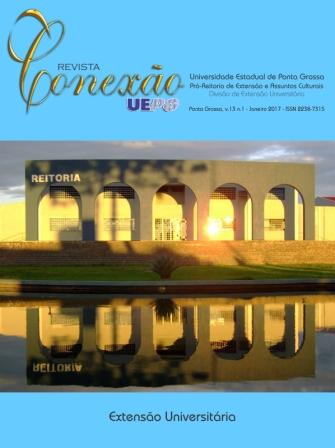THE USE OF DIGITAL INFORMATION AND COMMUNICATION TECHNOLOGIES (DICT) BY PROFESSORS - DOI: 10.5212/Rev.Conexao.v.13.i1.0010
DOI:
https://doi.org/10.5212/Rev.Conexao.v.13.i1.0010Keywords:
digital information and communication technologies, teacher education, Moodle.Abstract
The use of digital information and communication technologies (DICT) by teachers can have an impact on the teaching-learning process. In this context, the outreach project investigated in this study aimed at identifying the use of these technological resources in class, in particular Moodle. Thus, a diagnostic questionnaire has been applied to a sample group of teachers; the results of the questionnaire allowed not only identifying the learning needs of this public, but also to plan and offer workshops to make the use of DICT widespread among them. The results of the 53 answers collected showed how long the respondents have been teaching, how many of them have been trained to use Moodle and what technological resources they use. Based on the identified learning needs, a training course was developed and offered for the participating faculty members, which was later extended to teachers from Basic Education interested in the subject.
Downloads
Downloads
Published
Issue
Section
License
a) Authors retain copyright and grant the journal right of first publication with the work simultaneously licensed under a Creative Commons Attribution License that allows others to share the work with an acknowledgement of the work's authorship and initial publication in this journal.
b) By submitting an article to the Revista Conexão UEPG and having it approved, the authors agree to assign, without compensation, the following rights to the Journal: the rights of first publication and the rights to redistribute the article and its metadata to the indexing and reference services that the editors deem appropriate.
c) Readers are free to transfer, print out and use the articles published in the Journal, as long as there is always explicit mention to the author(s) and to the Revista Conexão UEPG and as long as there is no alteration of the original work. Any other use of the texts needs to be approved by the author(s) and by the Journal.






